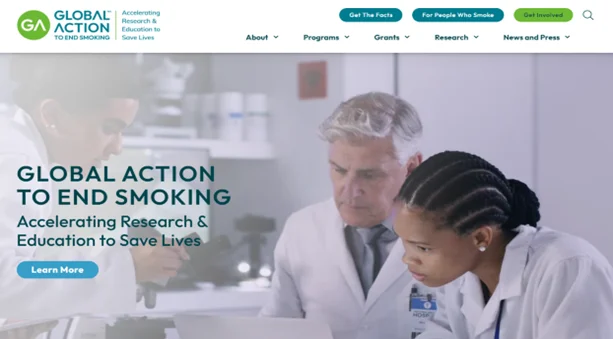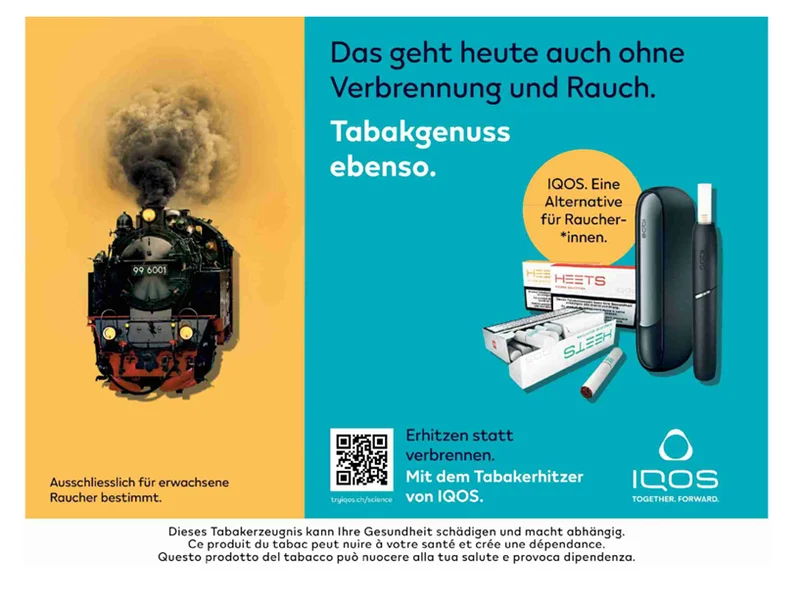- 13.08.2024
- News
Philip Morris manipulates science and plans advertising campaigns to influence politics
In a recent investigation by The Bureau of Investigative Journalism, a Philip Morris International (PMI) whistleblower, Shiro Konuma, revealed that science is for sale.
Shiro Konuma, a former PMI employee, disclosed that the company made payments to university professors and consultancy firms in Japan to secure favourable scientific endorsements in an attempt to promote PMIs IQOS as a safer alternative to conventional cigarettes, despite questionable evidence. These attempts by PMI were part of a strategy with the aim to secure lower tax rates for IQOS in Japan. Konuma, who previously worked as a doctor and diplomat combating diseases like malaria, Ebola, and AIDS, criticized IQOS. "They do not reduce harm,” he says of IQOS. “They do not reduce health risks. They do not reduce mortality. It is not proven.”
History of manipulation
The tobacco industry has a long history of influencing the scientific debate on smoking and health. It uses a range of tactics to skew evidence in its favour, including influencing how science is conducted and published. In the 1950s, independent research began definitively linking smoking to cancer. In response, the tobacco industry, including PMI employed various strategies to keep people using its products and disrupt public health efforts. These strategies included blocking, weakening, or delaying regulation, as well as undermining existing laws. A notable example is the creation of the Tobacco Industry Research Committee by PMI in 1953 to cast doubt on legitimate science. This tactic of presenting itself as objective and concerned with customer health continues today, with the industry acting through front groups and other third parties. Other research shows PMI presenting itself as a benevolent funder and concealing its involvement to enhance credibility. Through the Foundation for a Smoke-Free World, now re-branded as the Global Action to End Smoking, PMI funds research that supports its products while appearing independent. This mirrors the tobacco industry's long history of influencing science to obscure harms. Current efforts are particularly focusing on promoting heated tobacco products, creating doubt about their risks, and portraying industry solutions as beneficial, all aimed at maintaining public trust and undermining genuine public health measures.

PMI’s Foundation for a Smoke-Free World rebranded as the Global Action to End Smoking, with a new logo, website and flashy Shutterstock images and videos.
Swiss Connection: Zurich Cases
This manipulation extends beyond Japan, with recent examples emerging from Switzerland. In 2014, the University of Zurich published a study showing that there was no evidence that plain packaging reduces consumption. This was despite a broad scientific consensus and the observations of the WHO wherever this measure had been introduced attesting, on the contrary, to the effectiveness of plain packaging. The study was fully funded by PMI to the tune of more than CHF 100,000. Only last year, in 2023 PMI was found to be involved in research with the prestigious ETH Zurich, where three of the main authors of the published study were found to work for PMI. Further investigation revealed that PMI had helped finance the research, with one million Swiss francs. This case underscores how PMI continues to influence scientific research globally, aiming to skew results in favour of their products, likely in a similar attempt to mislead both regulators and the public.

Advertising Campaigns: A Broader Strategy
PMI’s strategies are not limited to manipulating scientific research but involve advertising campaigns – of course, how will the public know of their funded research if they do not publicize it in newspapers, magazines or online?
A recent study from AT Switzerland published in the journal Tobacco Prevention & Cessation revealed how PMI's advertisement campaigns were launched in line with key parliamentary sessions in Switzerland. In one year, PMI spent up to CHF 6.5 million for print advertisements alone. They especially funded advertisements that promote IQOS as a safer alternative, aiming to shape consumer, and more importantly political perceptions of the product. If they can convince people that their products are less harmful than cigarettes for example, they may avoid stricter regulations, particularly a lower tax rate, as with their attempts in Japan, before Shiro Konuma blew the whistle.

Description: PMI IQOS advertisement in Luzerner Zeitung, “Today this can also be done without combustion and smoke,” 05 March 2021.
Currently in Switzerland, IQOS does fall under a separate category than traditional cigarettes in the tobacco product law that will soon come into effect, thus being taxed only 12%, in comparison to the 54% of traditional cigarette taxation (which is already below the WHO recommendation). With manipulated research and advertisement campaigns highlighting the “reduced harm” of their IQOS, PMI is trying to ensure that this reduced tax rate is maintained.
Can We Trust PMI?
The question remains: Can we trust PMI's claims about offering a "better alternative"? Asked about PMI research conducted in Japan, Konuma says "No. No. No. Their science is not credible."
As regulators and public health officials grapple with these revelations, the need for transparent and independent research has never been more critical.
Research carried out by Tobacco Control Research Group (TCRG) has uncovered a slew of evidence on the manipulation of science for profit in Japan by PMI. Read it here:
For more details on the AT Switzerland advertisement expenditure analysis, you can read the full article here: